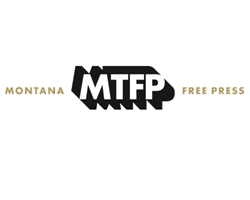Covering Coal’s Tracks?

By Johnathan Hettinger
October 20, 2020 - A federal coal advisory council that frequently advocates expanding coal production has illegally operated in secret during the Trump administration, a federal lawsuit filed last week in Great Falls by the Western Organization of Resource Councils alleges.
The lawsuit against the U.S. Department of Energy alleges that the National Coal Council, an advisory board of the U.S. Department of Energy, violates the Federal Advisory Committee Act by refusing to make all of its meetings public and has failed to release records associated with its deliberations.
The council has changed direction under the Trump administration. Prior to 2017, the council published reports promoting the expansion of carbon capture technology, energy storage projects and lowering emissions of coal operations.
But during the Trump administration, the council has advocated in official reports for increased coal extraction in a number of ways, including increased subsidies for coal companies, investments in new coal markets and lowered pollution standards.
The U.S. Department of Energy did not respond to a request for comment.
Under federal law, advisory council meetings must be open to the public and the council must publicize records related to decision-making, but the NCC has skirted the law by developing a shell structure, the lawsuit alleges.
The council is split into two entities: an advisory council and a nonprofit organization called NCC, Inc. That 501(c)(6) organization collects dues from members and uses the funds to further the council’s work.
The advisory council is subject to federal disclosure laws, but the nonprofit NCC, Inc. purports to operate outside of those laws. The lawsuit argues otherwise. Under federal law, all information used to inform the council’s work should be public record, the suit claims.
Most at issue are the final reports approved by the advisory council. Those reports “appear out of thin air, but it’s not clear where it came from,” said Shiloh Hernandez, an attorney with the Western Environmental Law Center, local attorney for WORC.
Because of the federal government’s failure to release information, it is impossible to know. While the advisory council’s meetings are open to the public, WORC said in the lawsuit that it has been trying to obtain the behind-the-scenes work that informs council reports and recommendations, but that it remains unclear what information goes into that process. The reports could be coming from a subcommittee or from the nonprofit organization, which is funded by undisclosed donors.
Currently, those donors are anonymous, but the lawsuit alleges they are likely pro-extraction interests, leading to bias toward coal industry interests in the council’s final reports.
The subcommittees “appear to be crafting the Council’s policy recommendations and offering the recommendations directly” to the Department of Energy,” the lawsuit alleges. The council has blocked the public release of documents related to those subcommittee deliberations, the lawsuit alleges.
“In short, the NCC currently functions as a federally chartered industry association,” the lawsuit claims.
Jeanie Alderson, chairwoman of the Northern Plains Resource Council, a Montana affiliate of WORC, said in a press release that the National Coal Council should be focused on supporting a transition away from coal, instead of pushing for “taxpayer subsidies and rolling back protections for human health and the environment.”
“It’s heartbreaking that this secretive committee ignores the needs of my friends and neighbors while writing reports funded by shadowy private donors. We need to find out what’s being done in our name,” Alderson said.

